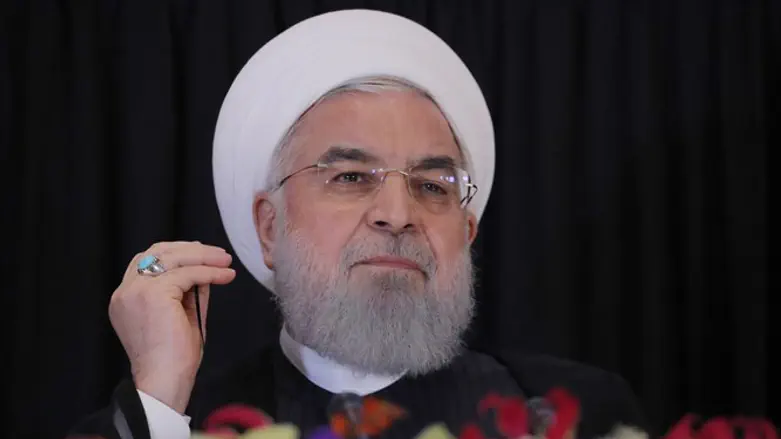
Iranian President Hassan Rouhani suggested that the Islamic Republic could hold a referendum over the country's nuclear program amid the unraveling deal with world powers, The Associated Press reported Sunday, citing official Iranian media.
According to the official IRNA news agency, Rouhani made the suggestion in a meeting with editors of major Iranian news outlets on Saturday evening.
Rouhani said he had previously suggested a referendum to Supreme Leader Ayatollah Ali Khamenei in 2004, when he was a senior nuclear negotiator for Iran.
At the time, Khamenei approved of the idea and though there was no referendum, such a vote "can be a solution at any time," Rouhani was quoted as saying.
A referendum could provide political cover for the Iranian government if it chooses to increase its enrichment of uranium, prohibited under the 2015 deal with world powers.
US President Donald Trump pulled out of the 2015 deal in May of last year and has since then imposed two rounds of sanctions against Iran.
In response, Iran announced recently it would reduce some of its commitments under the 2015 nuclear deal, though it would not quit the deal completely.
Last week, the Islamic Republic said it quadrupled its uranium-enrichment production capacity, though Iranian officials made a point to stress that the uranium would be enriched only to the 3.67% limit set under the 2015 deal, making it usable for a power plant but far below what's needed for an atomic weapon.
Germany, France and Britain, which did not agree with Trump’s decision to leave the deal, have been scrambling to prevent a collapse of the agreement.
The EU recently introduced a trade mechanism that would bypass US sanctions on Iran, in a bid to save the 2015 deal, but Iran said the mechanism is not sufficient.
Rouhani's remarks could be seen as a defense of his stance following the rare public chastising by the supreme leader.
Khamenei last week named Rouhani and Foreign Minister Mohammad Javad Zarif as failing to implement his orders over the accord, saying it had "numerous ambiguities and structural weaknesses" that could damage Iran.
